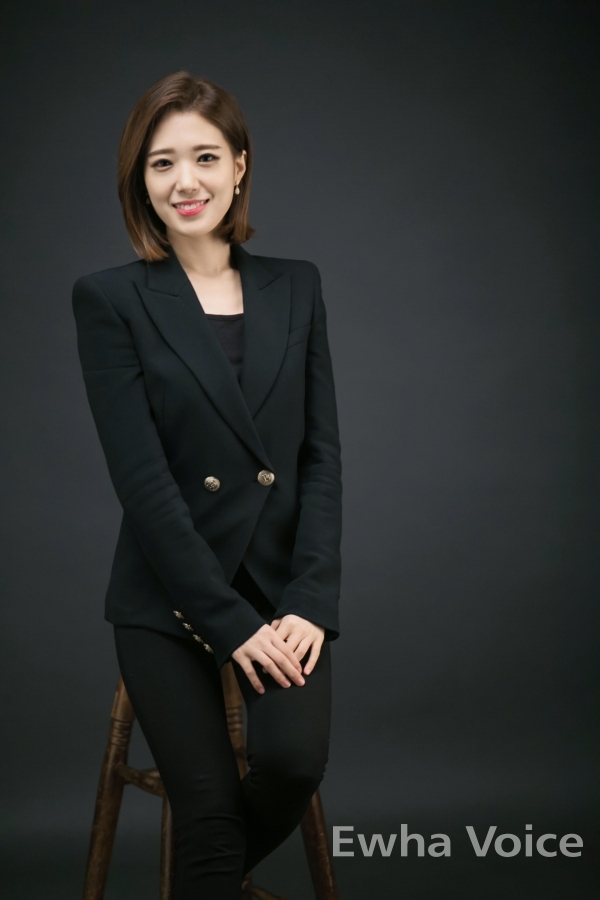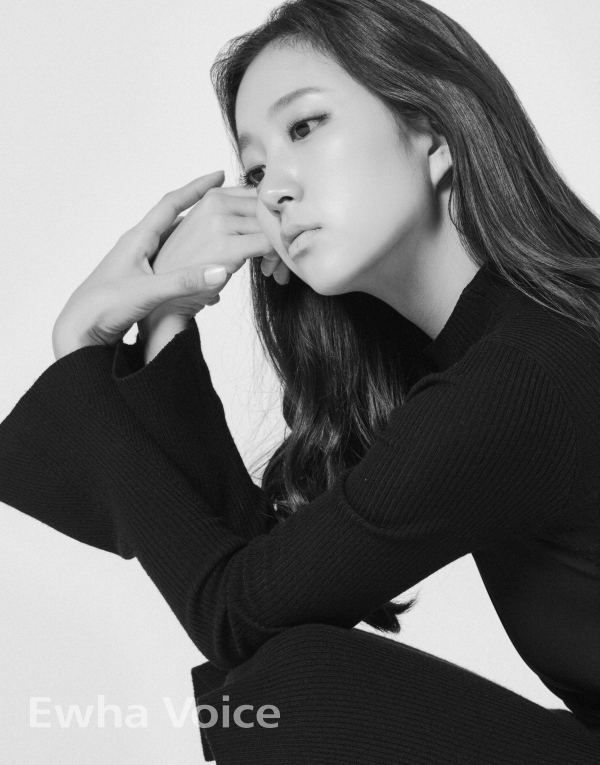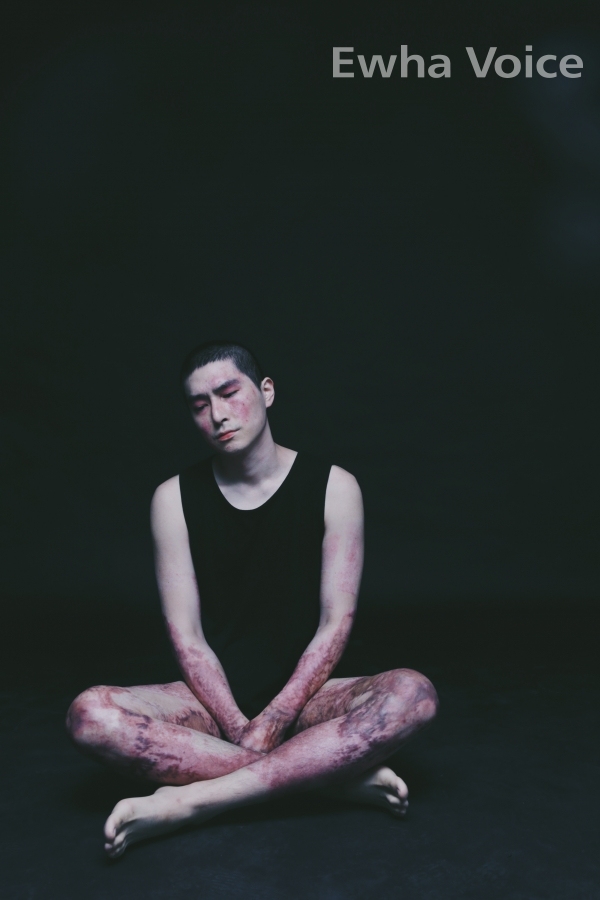According to a recent National Disability Survey, South Korea has more than 2.6 million persons with disabilities with approximately 50 percent suffering from physical disabilities. Despite recent policy and service improvements, many people with disabilities remain isolated and excluded from mainstream society.
Activists now call for a dire need for Korean society to change its views and treatment of people with disabilities. In a bold move, Parastar Entertainment, Korea's first management agency only working with talent with physical disabilities, is now helping artists and even athletes to turn their dreams into reality.
Parastar CEO Cha Haley discovers talented artists with disabilities

Photo provided by Cha Haley
Cha Haley, CEO and co-founder of Parastar Entertainment, was hosting the 30th anniversary of Seoul’s 1988 Paralympic Games when she met Parastar’s co-founder and current Para Ice Hockey national team coach, Han Min-su. He elaborated the need for spreading more public awareness of people with disabilities, and Cha naturally became interested in their lives.
“One day, a wheelchair fencing athlete asked Han what it would be like to set up an agency for people with disabilities,” she said. “I thought it was a great idea and told them about a British specialist talent agency that I was familiar with, Zebedee management. When Han offered me to join, I shouted okay on the spot without any second thoughts. Parastar Entertainment started like that, with one phone call.”
Parastar now manages Paralympians, models, and dancers. Each athlete belongs to their own team and is immersed in training for more of the year. Instead of providing programs, Parastar produces material that athletes can distribute to other agencies.
For example, models have regular model training time with such courses focused on walking and posing. They are also given opportunities to audition. Many of the models aim to pitch themselves overseas, which led Parastar to have business arrangements with global agencies like Spadekay Model Agency. Other groups like the uni-legged b-boys, the deaf ballerinas, and the wheelchair dancers are all actively performing on stage. Parastar connects them with different performances and productions and provides ideas for collaboration between artists under their management.
Parastar casts artists using social media with disability-related hashtags or finding articles about them. This adds to their 24-hour audition system, where people can apply online or have in-person auditions.
“What we look for is charm,” Cha explained. “As we are looking for people wishing to engage in entertainment activities, we need to find those who are attractive to the public. There are people who have magnetic personalities, even if they are not perfect at the moment. Some artists mesmerize us with their excellent looks with a single glance, and those whose eyes sparkle when they dance or act.”
After Parastar Entertainment was founded in 2020, they received significant attention — more than they had expected. While there were times when runway fashion shows did not go as planned, the demand for video production increased, and their artists received many offers to appear in videos.
One of Cha’s biggest motivators is to change the perception of people with disabilities in public. She believes the media has played a significant role in creating discriminatory views on people with disabilities. A lot of documentaries portray them living in hardships, and in all kinds of movies and dramas, they have traditionally been depicted as weak victims. The media thus makes it difficult to form positive views about people with disabilities.
“To change discriminatory social perceptions, the media should do exactly the opposite,” she said. “If they consistently cast those with attractive looks, great abilities, and fun personalities, it will naturally give the public a new perspective. Parastar Entertainment is working hard to fulfill that role.”
For now, Cha and Parastar aim for more active engagement with their artists in domestic and international entertainment, from TV auditions for models with disabilities to debuting models on runways overseas. However, the long-term goal remains the same as when they began, which is getting to a point where Parastar is no longer needed.
“When people with disabilities can participate more actively in society without receiving any discrimination, the agency that represents and supports them will no longer be needed,” she noted. “We are looking forward to the day when discrimination disappears, and the reason for our existence ceases to matter.”
Seize the opportunity and overcome the impossible: Model Seo Young-chae

Photo provided by Seo Young-chae
Model Seo Young-chae is one of the talented artists who are part of Parastar entertainment. For over eight years, Seo worked as a model in spite of the obstacles in front of her due to being deaf.
Seo first gained recognition from the public when she appeared in the famous television show series “Korea’s Next Top Model Season Four.” Although she was only 19 years old at the time, she was applauded for her diverse facial expressions and strong perseverance. At the end of the show, she was one of the top 10 contestants who survived the audition.
“I decided to audition for the program because I wanted to push my limits and attempt something completely new,” Seo said. “I wanted to show people that even though I am deaf, I can still express myself and touch people’s hearts through my expression — particularly my eyes.”
Seo continued her modeling career after the program was over. Her modeling opportunities expanded even further after she became part of Parastar Entertainment. In the past, she had great difficulty acquiring general information regarding auditions and modeling events quickly because she was deaf. However, Parastar Entertainment assisted her tremendously with collecting such information. The company also supports her by providing modeling lessons, which helped improve her modeling skills hugely. Recently, she walked for the 2021 FW Seoul Fashion Week runway for Greedilous designed by Park Youn-hee.
Seo hopes to expand her modeling career and walk for even larger fashion runway events in the future. However, she recognizes that the industry and general public still have skewed perceptions towards people with disabilities.
“Such biases are due to their lack of knowledge on people like me, so we have to understand and explain the difference,” she said. “I rather think it is an advantage of being deaf as a model, when it comes to using sign language. When communicating through sign language, people tend to use their face and gestures, so it makes acting on the runway easier.”
Seo wants to bridge the gap between people with disabilities and others with a dedicated drive to push herself further by showing that they are essentially the same.
“I want to be remembered as a proud mother who did not put limits on herself,” Seo concluded. “You can have a bright future ahead of you only if you experience failure. Seize the opportunity!”
Resilience, perseverance, and discovery: K9 survivor Lee Chan-ho

Photo provided by Lee Chan-ho
On Aug. 18, 2017, a K9 self-propelled howitzer exploded during a firing exercise. Three people lost their lives, and four were left with severe injuries. Lee Chan-ho, a 23-year-old soldier who was completing his mandatory military service at the time, was one of the survivors. Lee suffered burns that covered over half of his body. Today, however, despite the tragic events of that day, Lee works as a full-time model and writer with the help of Parastar Entertainment.
Lee never imagined himself becoming a model or a writer before the accident. Before serving in the military, he was an aspiring actor who even featured in a short film. However, his dream seemed realistically out of reach due to his burns and scars.
“Although my burns and scars were disadvantageous for an acting career, I thought my burns could actually shine as a show of strength if I became a model instead,” Lee said.
Lee did not confine himself to only modeling. After experiencing drastic changes in his body and life, he began writing down his feelings then uploaded them on social media. Soon after, a publishing company contacted him after reading some posts on his account. Subsequently, he decided to take writing more seriously and published a book in 2019, “It’s Okay, Even if I Can’t Go Back.”
In his book, Lee sought to share his experience on how his view of the world was wholly altered after the life-changing accident. Many readers found his writing touching, especially due to his unique insight about the meaning of life.
According to Lee, the perception of people with disabilities was much harsher than he expected. He was suddenly confronted with the reality of people expressing their pejorative views toward people with disabilities including himself. This was especially so in Korea, where appearance is held in high regard. At first, he would always go outside with a mask and hat on to avoid the side-eyed glances.
“I realized that I cannot live the rest of my life hiding from the public eyes,” Lee said. “I am only in my twenties — there is a long way to go. Gradually, I began showing off my burns and scars with pride. To help ease some of the scornful judgment against people with disabilities, I started volunteering in organizations that spread awareness of people with disabilities.”
In 2018, Parastar’s co-founder Han Min-su convinced Lee to join the management company. This helped him further his ambitions, from emotional support to profile photos used for castings. Recently, Lee made a successful debut in a commercial for a mobile game called Armis, alongside singer Se-Jeong Kim.
“Along with modeling, I want to achieve my dream as an actor,” Lee said. “I want to present my scars in a way that can flip the audiences’ perceptions of disabilities in an optimistic light and be remembered as an individual who can resonate with people with visible and invisible scars.”
In Korea, there is still room for improvement to make the lives of people with disabilities more comfortable. Lee believes that the government is still not investing enough aid for people with disabilities. He proposes that more financial support and campaigns are needed to spread awareness to eliminate the negative public opinions about people with disabilities. In that case, he contends that the world would be an even better place.
“Our lives as people with disabilities are always filled with a series of obstacles,” Lee said. “Despite the barriers that are in front of us, I hope that people with disabilities can overcome them a step at a time and one day achieve their dreams in a healthy manner.”

